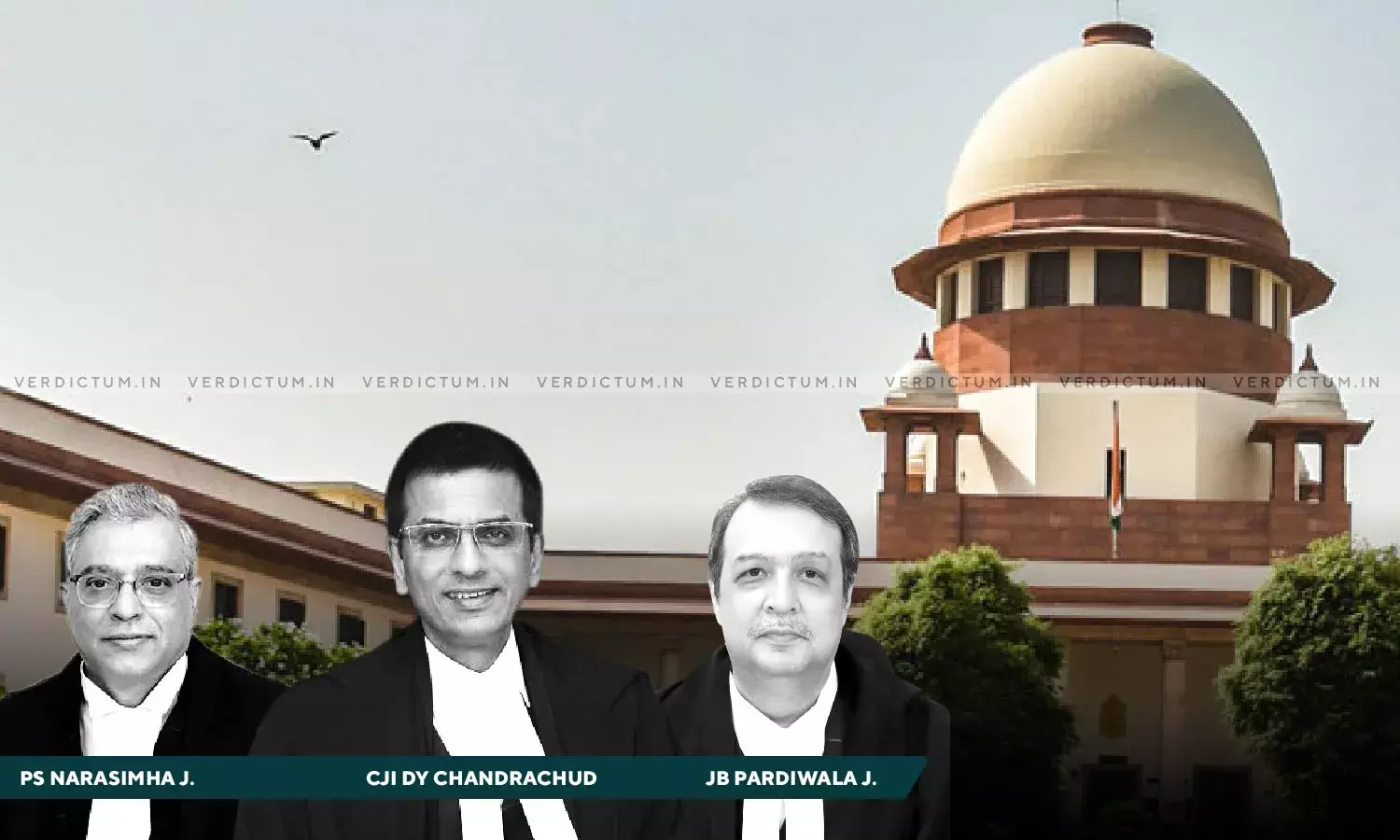Income Tax Act Would Govern Appointment Of Members Of Tax Tribunal Made As Per 2013 Circular: Supreme Court

The Supreme Court has recently held that the appointment of the member of the ITAT would be governed by the provisions contained in the Income Tax Act 1961 when the offer for the appointment was made in pursuance of the 2013 circular.
"Though the appointment letter was issued to the applicant on 19 March 2018 (in pursuance of the letter of offer dated 24 October 2017), the appointment of the applicant was pursuant to the selection process which had been initiated with the circular of 17 April 2013", held a Bench comprising Chief Justice DY Chandrachud, Justice PS Narasimha and Justice JB Pardiwala.
AoR Anil Katiyar appeared for the petitioner while ASG Balbir Singh and Senior Advocates R Balasubramanium, Arvind P Datar, Sidharth Luthra, P.S. Patwalia and Shyam Diwan appeared for the respondents.
"It is not in dispute that other persons who were selected in pursuance of that process were issued with letters of appointment much before the 2017 Rules came into effect", added the Court further.
The petitioner, the applicant in an IA before the Apex Court, is a member of the Income Tax Appellate Tribunal (ITAT). In 2013, the petitioner applied in the unreserved category when a circular to fill up 48 vacant posts of Members of the ITAT was issued by the Union Government.
In 2017, the High Court of Calcutta set aside the decision of the Central Administrative Tribunal which rejected the petitioner's challenge against non-inclusion of her name in the panel of appointment.
"[W]e set aside the impugned order dated 9th November 2016 passed by the learned Tribunal in OA 350/00979/2016 and direct the ACC to consider the petitioner’s candidature afresh for appointment to the post of Judicial Member under unreserved category in the Income Tax Appellate Tribunal," said the High Court.
The High Court held that the petitioner’s candidature should not be rejected on the ground that the petitioner’s income tax return for the assessment year 2010-2011 is not available as reported by the Under Secretary to the Government of India, Ministry of Finance, Department of Revenue, Central Board of Direct Taxes.
Thereafter, in light of the judgment of the High Court, a letter of offer was issued to the petitioner on December 24, 2017 followed by a letter of appointment dated March 19, 2018.
In 2018, a representation was submitted to the Department of Justice saying that the appointment of the petitioner was in a vacancy of 2013, which was governed by the Income Tax Act 1961. Rule 11 of the Income Tax Appellate Tribunal Members (Recruitment and Conditions of Service) Rules 1963 stipulated that the age of retirement of the Members of the ITAT would be 62 years.
Consequently, she contended that the tenure of her appointment should operate until the age of 62 and not for a period of three years as stated in the letter of appointment.
In 2018, vacancies were declared under the 2017 Rules. The Supreme Court in Rojer Mathews v. South Indian Bank Limited & Ors. struck down the 2017 Rules and directed that appointments shall be made in terms of the respective statutes before the enactment of Finance Bill 2017.
In July 2021, the Supreme Court clarified its decision in Madras Bar Association vs Union of India that all appointments made before April 4, 2021 would be governed by the parent statutes. Also, on March 9, 2021, an interim order was passed by the Supreme Court directing the continuation of the petitioner as a Member of the ITAT until March 17, 2023.
The Court held that the clear position on the facts of this case is that the right of the applicant to appointment had been crystallized even before the 2017 Rules and her tenure shall be extended until she attains the age of 62 years.
Cause Title- Madras Bar Association v. Union of India & Anr.
Click here to read/download Order

